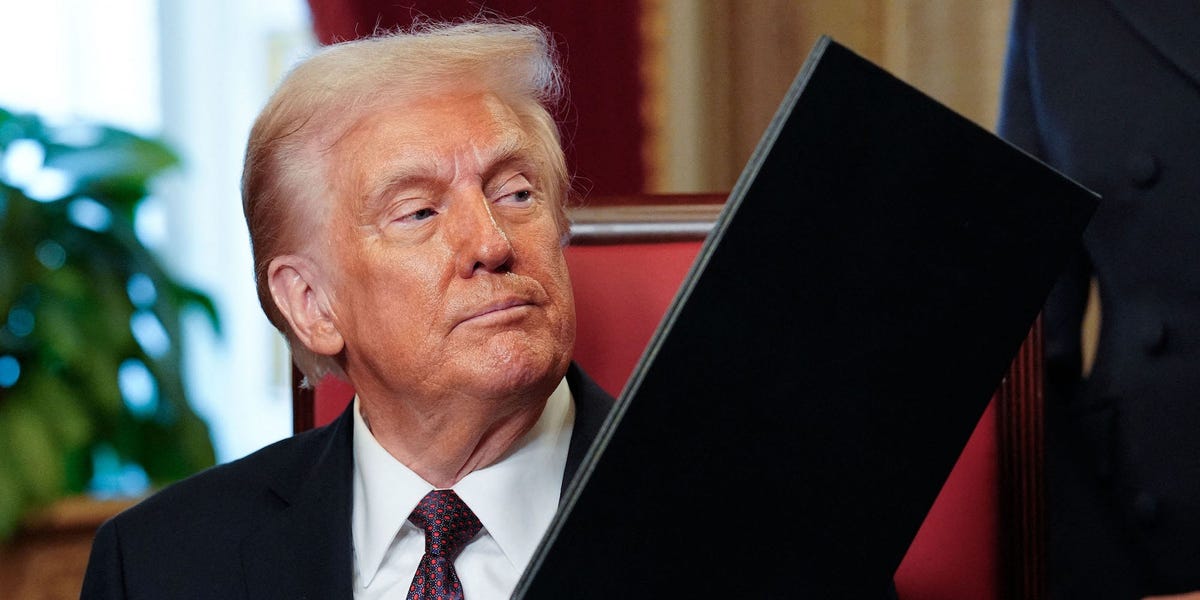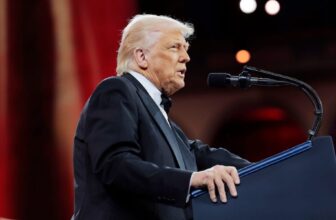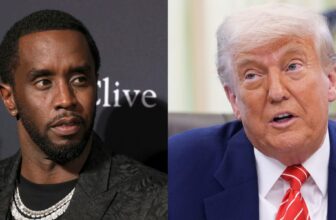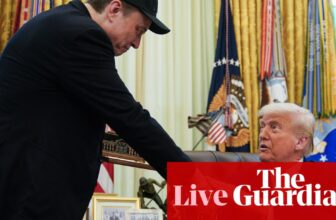
Try our newest merchandise
- President Donald Trump is threatening to impose tariffs on Taiwanese-made chips of as much as 100%.
- That could possibly be unhealthy information for Nvidia, which depends on Taiwan’s TSMC for its chip provide.
- On Monday Nvidia noticed 17% wiped from its worth in a market rout triggered by China’s DeepSeek.
President Donald Trump’s pledge to impose tariffs on Taiwan-made semiconductors might deal a recent blow to Nvidia after its shares dropped by 17% in a DeepSeek-induced sell-off.
Tech companies like Nvidia have lengthy relied on Taiwan’s TSMC, the world’s largest contract semiconductor producer, to make the specialist AI chips they design within the US.
That relationship was threatened on Monday because the president delivered a speech to Republicans by which he mentioned tariffs on Taiwan could be geared toward returning the manufacturing of chips to the US.
“They left us and went to Taiwan,” mentioned Trump, seemingly in a swipe at US companies who supply processors from TSMC.
Trump mentioned corporations wouldn’t need to pay a “25%, 50%, or perhaps a 100% tax.”
US tariffs on Taiwan’s semiconductors might end in a steep improve in prices to Nvidia and different important prospects, akin to Apple and AMD. Chip manufacturing efforts within the US are presently much less developed and dearer than these in Taiwan.
The specter of tariffs dangers a double blow for Nvidia, one among TSMC’s largest prospects. Nvidia has been left reeling after the discharge of an AI mannequin from Chinese language startup DeepSeek precipitated it to lose $589 billion in market worth on Monday.
Buyers reacted with panic amid fears that Nvidia’s chips might face a decline in demand as a result of DeepSeek’s new mannequin claims to have achieved efficiency ranges much like a frontier mannequin created by OpenAI — however with fewer and fewer superior chips than these utilized by the ChatGPT maker.
An Nvidia spokesperson declined to remark.
Getty Pictures
It’s unclear if Trump will proceed with tariffs on Taiwan, however US leaders have more and more exercised warning about dependence on the Far East nation for chips.
China has lengthy overshadowed the independently ruled island with the prospect of invasion, and a battle might massively disrupt the US financial system, endangering the availability of the chips important to swaths of the US tech sector.
The COVID-19 pandemic additionally uncovered the vulnerability of worldwide provide chains.
President Joe Biden, as a part of his CHIPS Act, sought to encourage extra semiconductor companies to arrange enterprise within the US by providing incentives akin to tax breaks. TSMC has moved a few of its operations to the US, opening chip manufacturing crops in Arizona as a part of a $65 billion initiative.
Whereas Trump has veered towards imposing tariffs to bolster US chip manufacturing, the US-based chip manufacturing sector might take years to develop the identical capability as Taiwan’s. That might imply larger costs for {hardware} that depends on chips from Taiwan, akin to Apple’s iPhones, Nvidia’s GPUs, and AMD’s processors.
“If the argument is that that is the way in which to pressure it to maneuver right here, TSMC is already shifting right here,” William Reinsch, a senior adviser with the Heart for Strategic and Worldwide Research, instructed Yahoo Finance final yr after Trump floated imposing tariffs on a podcast.
“They’re already constructing a fab plant in Arizona,” he added. “That is all already underway and the tariffs aren’t going to make that transfer any sooner. If something, they could complicate the hassle.”
Taiwan responded to Trump’s tariff pledge by pointing to the “complementary” relationship between the Taiwan and US economies.
“Taiwan and the U.S. semiconductor and different expertise industries are extremely complementary to one another, particularly the U.S.-designed, Taiwan-foundry mannequin, which creates a win-win enterprise mannequin for Taiwan and U.S. industries,” Taiwan’s financial system ministry mentioned in an announcement, reported Reuters.
AI is among the many sectors the place the US and China are in an intensifying battle for world technological dominance. On January 21, Trump introduced a $500 billion initiative to spice up AI infrastructure within the US alongside OpenAI, SoftBank, and Oracle.
TSMC didn’t instantly reply to a Enterprise Insider request for remark.

![[Windows 11 Pro]HP 15 15.6″ FHD Business Laptop Computer, Quad Core Intel i5-1135G7 (Beats i7-1065G7), 16GB RAM, 512GB PCIe SSD, Numeric Keypad, Wi-Fi 6, Bluetooth 4.2, Type-C, Webcam, HDMI, w/Battery](https://m.media-amazon.com/images/I/71LYTzK2A8L._AC_SL1500_.jpg)



![[UPDATED 2.0] Phone mount and holder compatible with Samsung Z Fold 2 3 4 5 6 Pixel Fold or Foldable phone | bicycle, treadmill, handlebar, elliptical, stroller, rail, handle, roundbar, golf cart](https://m.media-amazon.com/images/I/51CjGlidGRL._SL1023_.jpg)








